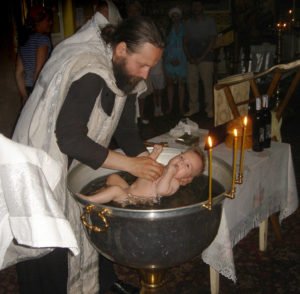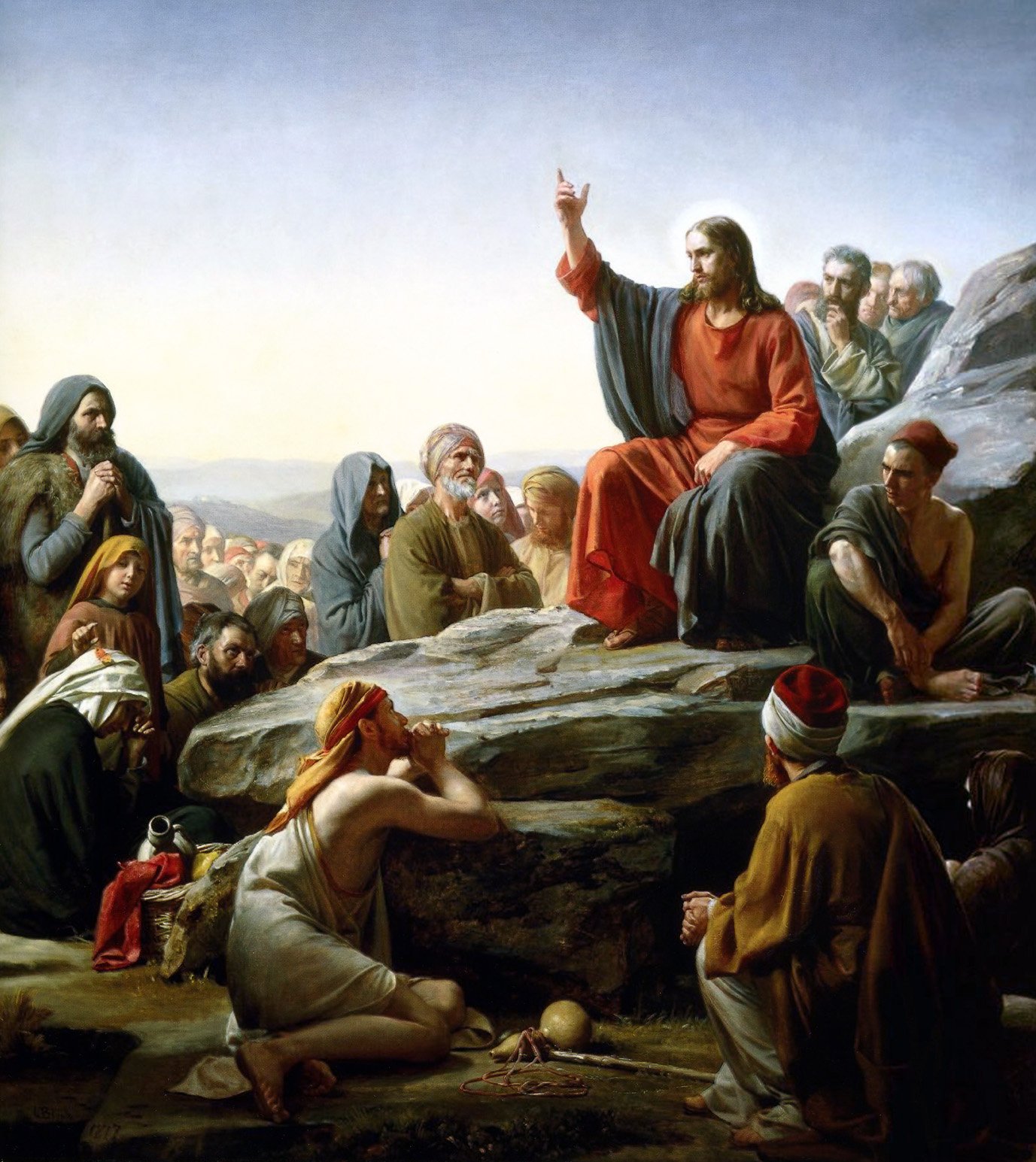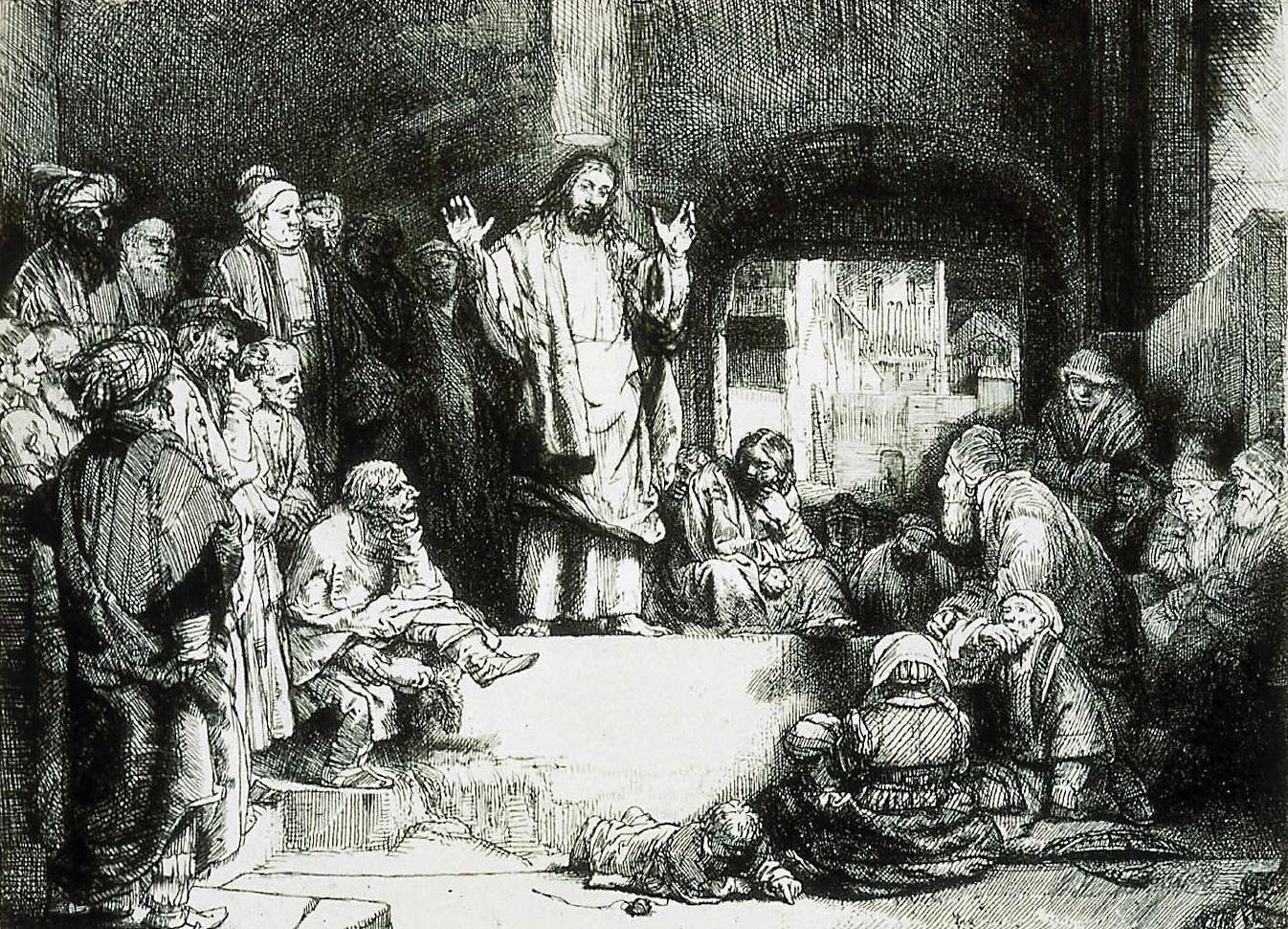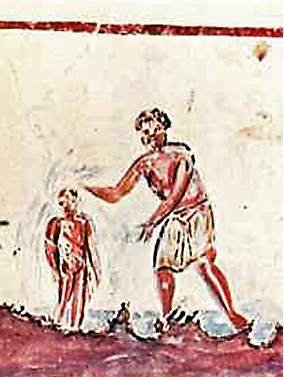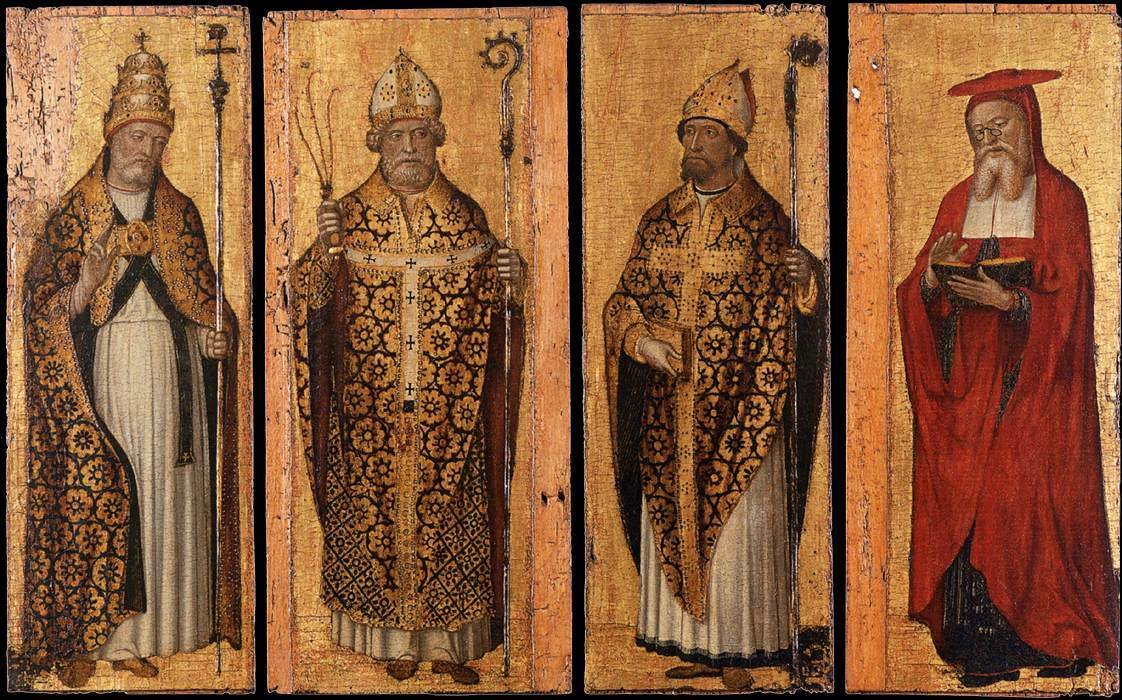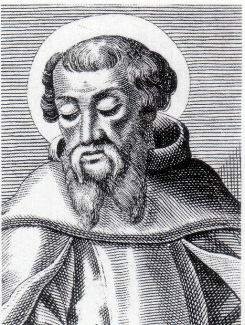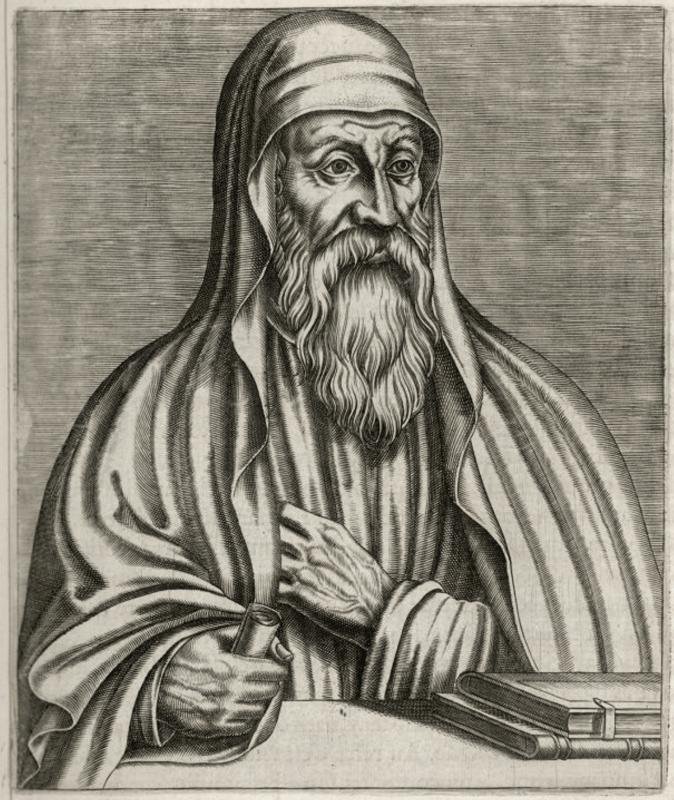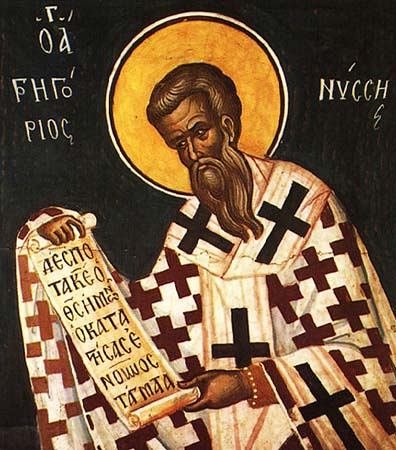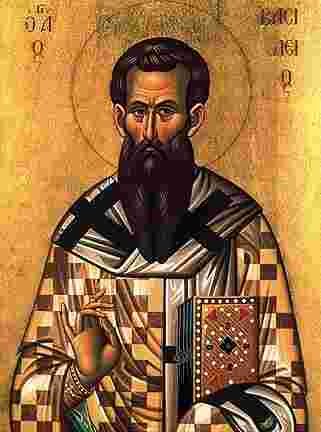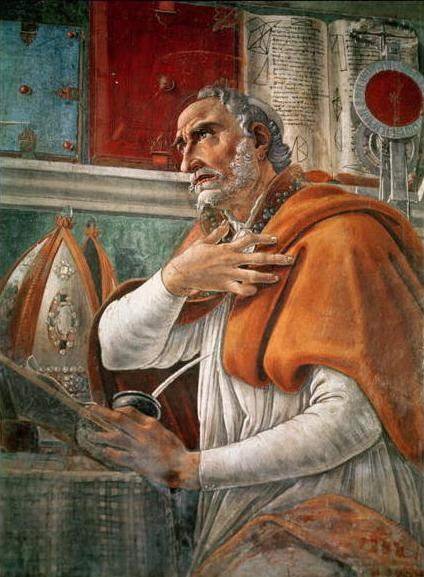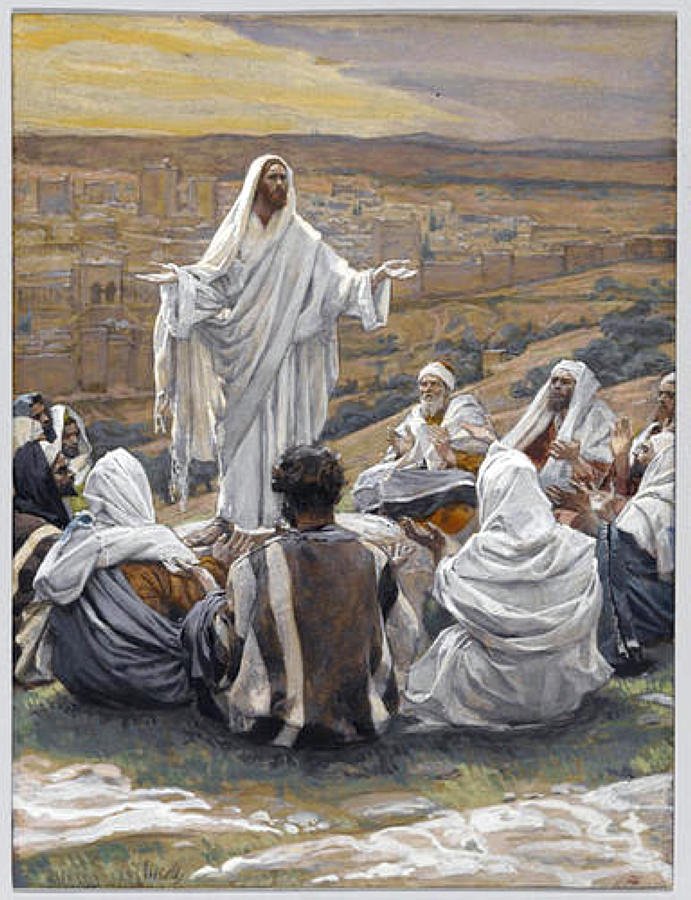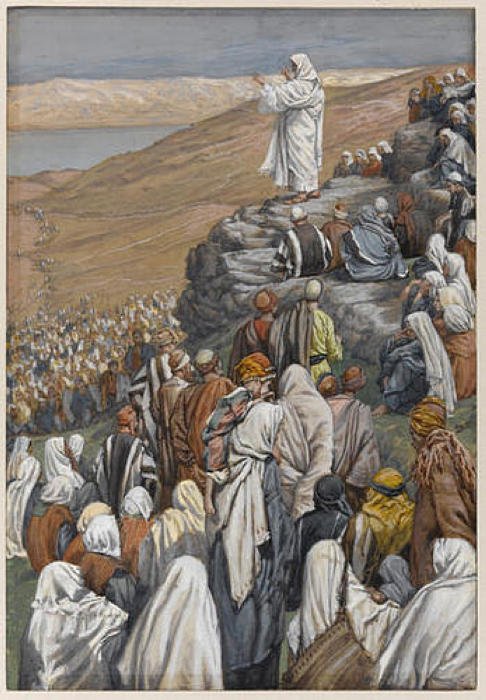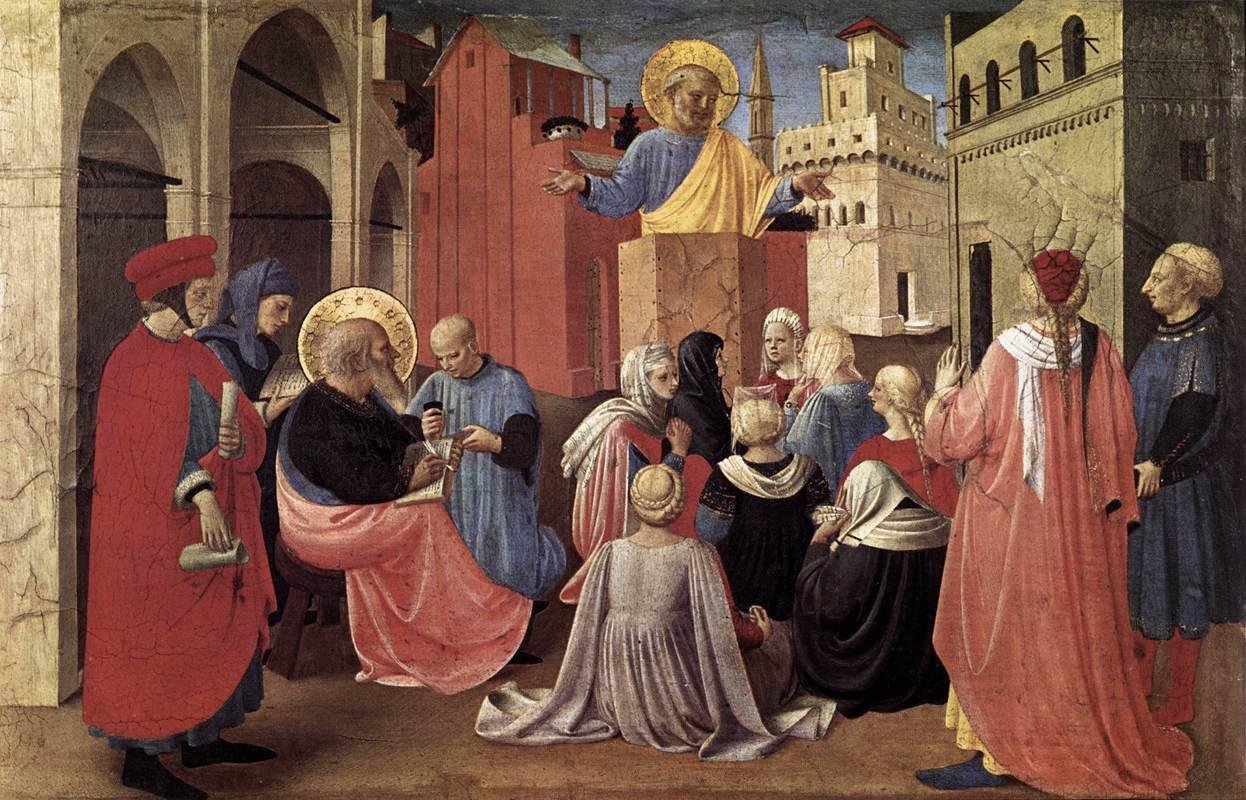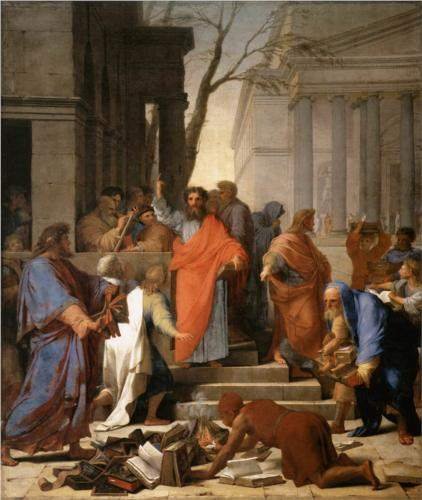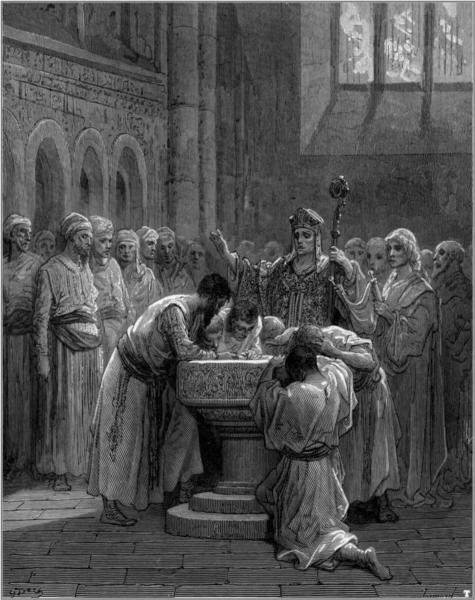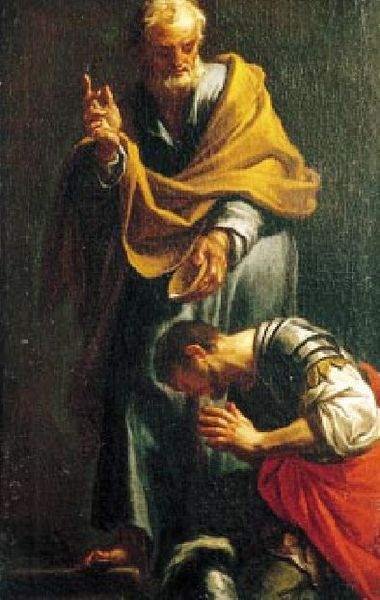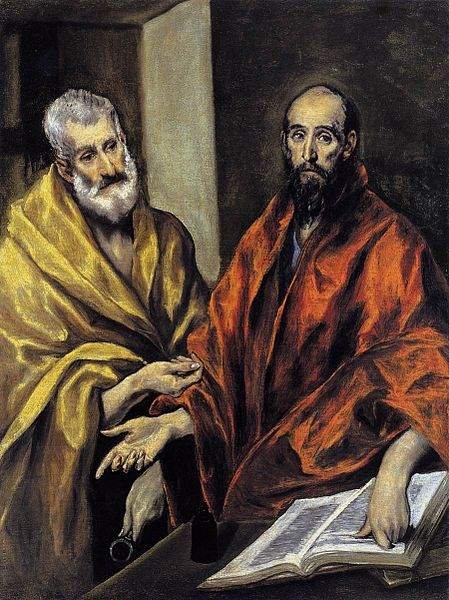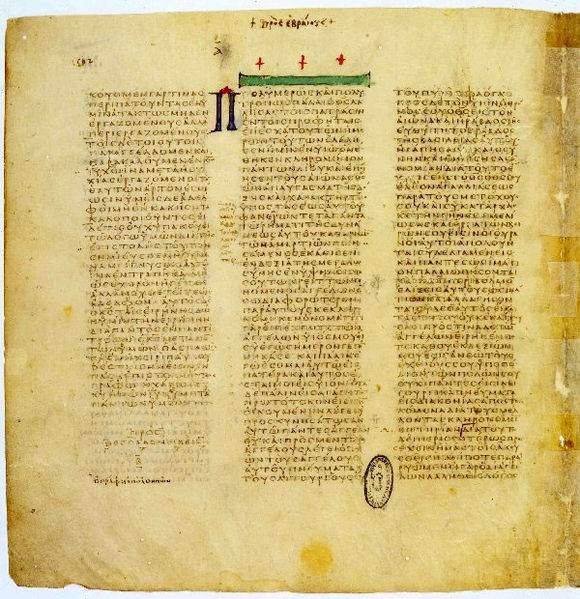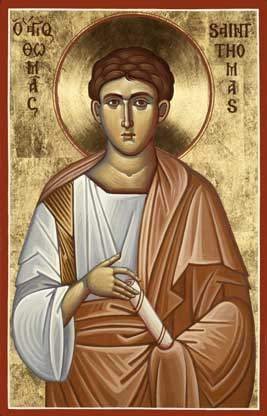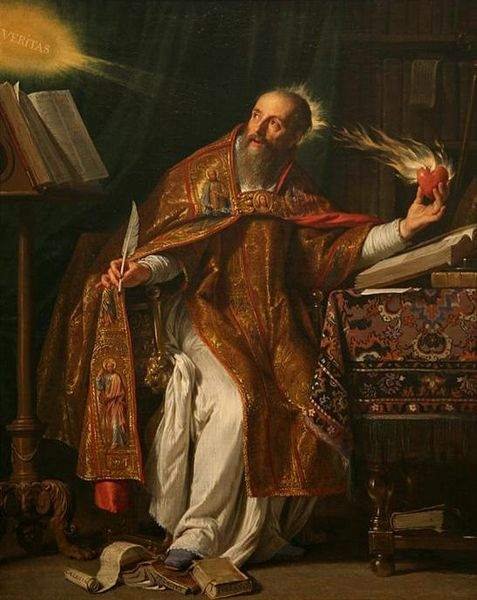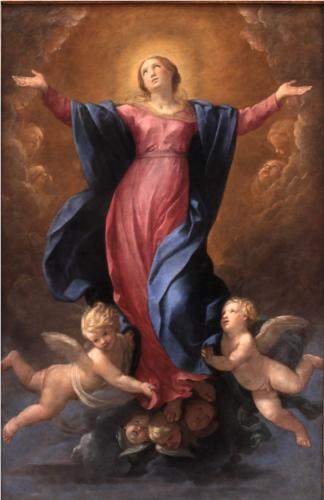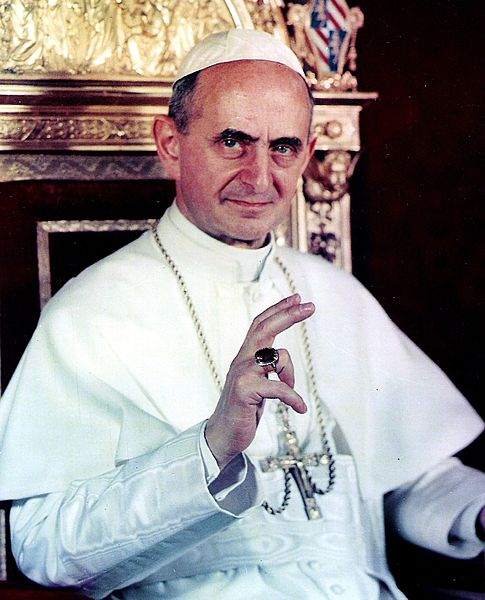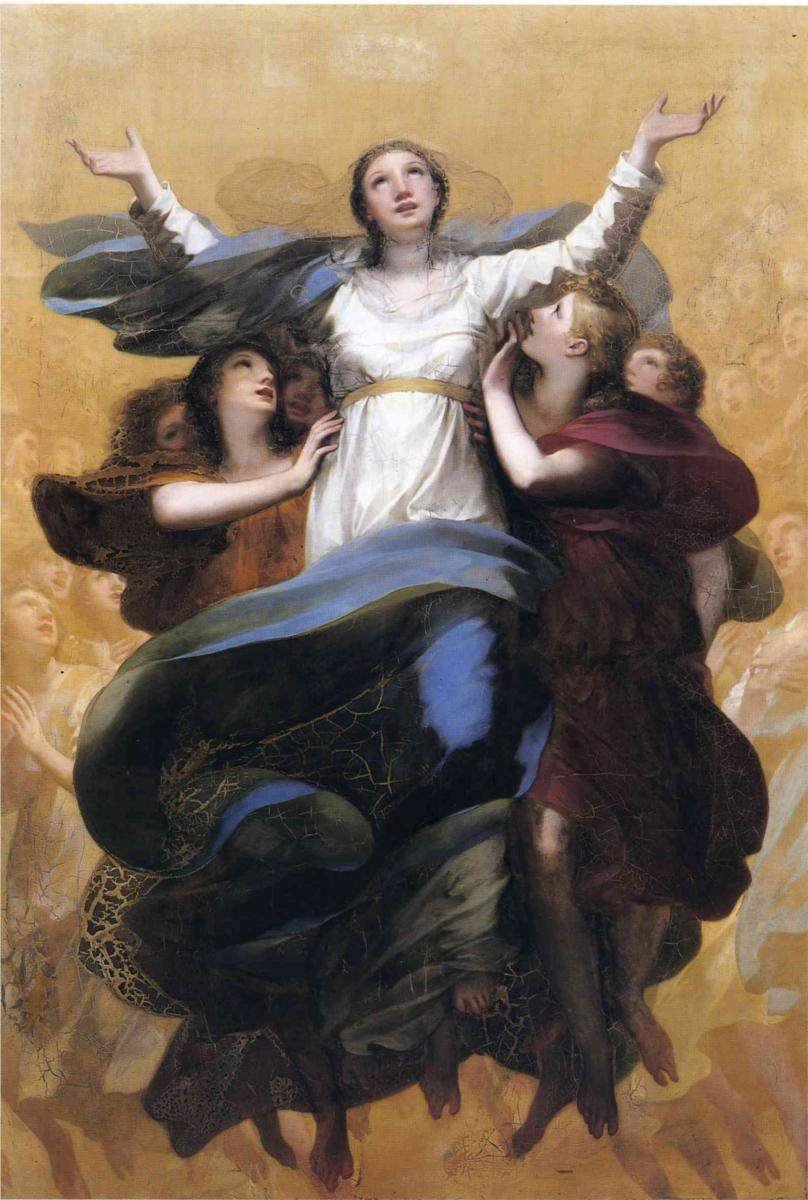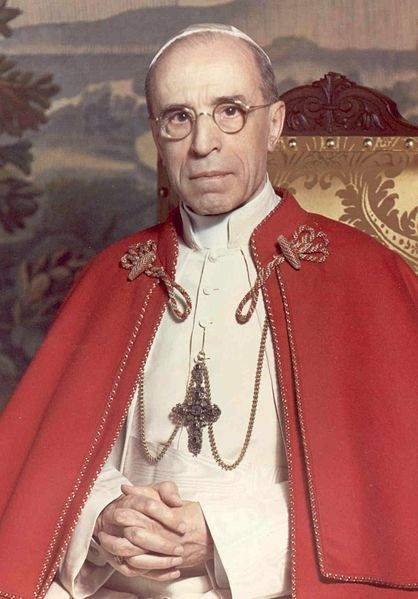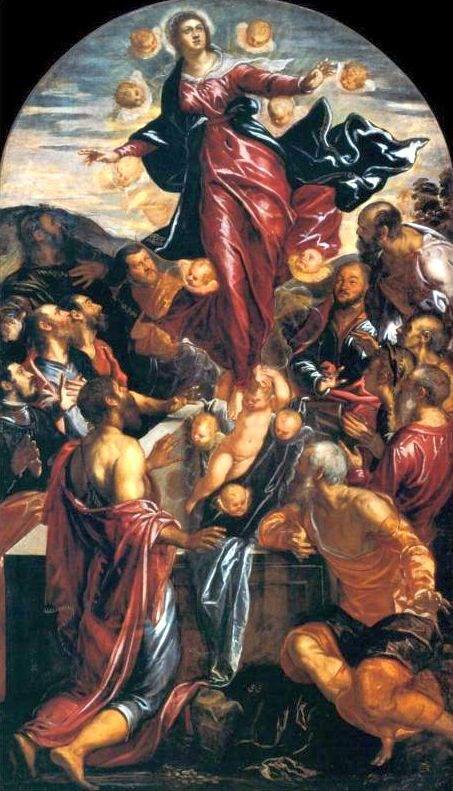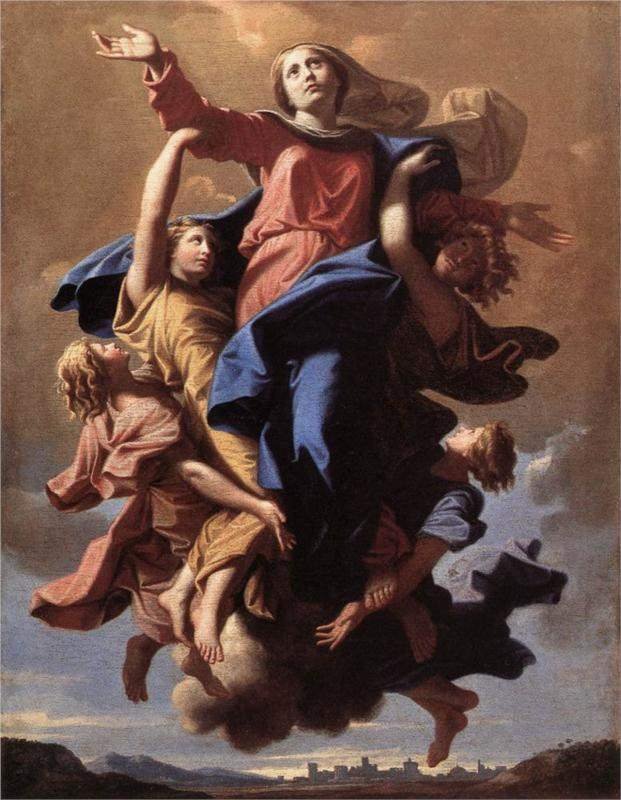The third and last part of my reflections on grappling with sola scriptura as a Protestant journeying to the Catholic Church. Part 1. Part 2. Part of my ongoing conversion story. This part proved to be really long, but the pieces were so dependent on each other that I wanted to post the rest of it whole; please bear with me.
An authoritative Church
The idea that the scriptural interpretations of the Church could have inherent authority was an epiphany to me. It was the catalyst that started the chain reaction, the push that started the dominoes falling, that would ultimately bring down the last vestiges of my faith in sola scriptura. But it was perhaps not the biggest hurdle. Recognizing that the Church Fathers are authorities in interpreting Scripture does not translate to accepting that the Catholic Church is the authority in interpreting Scripture.
Yes, an interpretation that is constructed from and founded on a sack full of authorities is generally going to be more authoritative than one based solely on one’s own unaided reasoning. A student who makes an argument from his own interpretation of a single primary source stands on shaky ground, while one who stands on the authority of learned men who have written on the matter in the past has a reasonable claim to credibility. As I have written before, this by itself gave me compelling reason to put stock in the claims and interpretations of the Catholic Church. Following those claims and the arguments made for them, I generally found the Church’s witness to be credible.
But accepting that the Church’s scriptural interpretations are authoritative and credible — a factual claim — is a far cry from accepting that the Catholic Church has the exclusive authority to interpret Scripture authentically — a doctrinal claim. My visceral inclination as a Protestant was to balk at such extravagance. But my willingness to consider and credit the scriptural, interpretive claims of the Church brought me, at least, to examine this one more closely.
What does it mean for the Church to claim “exclusive authority in interpreting Scripture“? What did the Church actually claim? And what was my objection? I had already admitted that the Church could authentically interpret Scripture. What I balked at, I realized, was the thesis that the Church could have authority at all — over believers, over me.
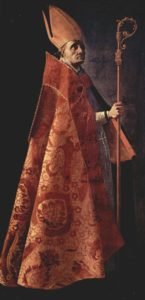
St. Ambrose, by Francisco de Zurbarán (c. 1627) (Wikimedia)
The truth is, I had never even encountered such an argument, that a church could have authority. It may be a commonplace for Protestants of more traditional denominations, but for me, steeped in such a free, independent, individualistic tradition, it seemed entirely foreign. The church, in my mind as a Protestant, was a voluntary social association. Our pastor was the man who preached every week at church, who had little or no personal involvement in our lives or faiths. Our deacons were little more than a board of directors for the corporation. The district council of our denomination, if we ever heard about it, seemed to exist mainly for cooperating in missions and youth activities. I don’t remember ever hearing of a national body (there actually is one). None of these bodies had any authority over our church; and I didn’t consider the church, or even the pastor, to have authority over me.
The Catholic Church, on the other hand, claims to have authority. This was a novel and fairly stunning concept, one that had never even occurred to me. Was the Church something more than just the people? Were its leaders something more than just public speakers, something more than business administrators? The Catholic Church claims to have some authority over its faithful. In what way was I supposed to understand this? On the surface, once again, I balked, imagining a tyrant, standing over believers, telling them what they could believe and do.
The Magisterium
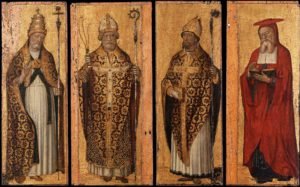
The Four Doctors of the Western Church: Pope St. Gregory the Great, St. Ambrose, St. Augustine, and St. Jerome.
When I first encountered the idea of the magisterium of the Catholic Church, I envisioned something like a formal council of robed and hoary bishops meeting weekly or daily, to which every interpretation of Scripture, every homily and every teaching, had to be submitted for approval. The magisterium, after all, claimed “exclusive authority of interpreting Scripture.” I supposed Catholics were forbidden from reading and interpreting Scripture on their own. Naturally, this conception was something to balk at.
But this isn’t, I soon discovered, what the Church was claiming at all. The magisterium of the Church refers to the Church’s teaching authority — her role as a teacher. The magisterium is not literally a formal body of men at all (although it can be said that the pope and the bishops in communion with him make it up); it does not meet (aside from the couple of dozen times over the whole history of the Church that all the bishops of the Church have met in ecumenical council); it does not stand over the scriptural interpretation of the faithful as any sort of regulatory authority. So what actually is being claimed?
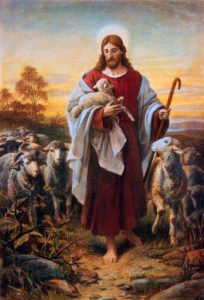
The Good Shepherd, by Bernhard Plockhorst (19th century) (Wikimedia)
Scripture presents that God Himself appoints preachers and teachers (e.g. 1 Corinthians 12:28, Ephesians 4:11, 2 Timothy 1:11) in the person of the bishops (1 Timothy 3:2, 5:17, Titus 2:24), men charged with passing on the truth of the faith (2 Timothy 2:2, 4:2) and keeping watch over the souls of the faithful (Hebrews 13:17). A pastor is a shepherd, one with authority over God’s flock (1 Peter 5:1-5). If we accept these teachings of Scripture, that God gave pastors and bishops the authority to teach and to guide His flock, then the notion that the magisterium of the Church, made up of all the bishops, should have the authority to teach the truth is not so far fetched.
With just a little reading, I soon came to see that what the Church really means when she claims that the magisterium of the Church has the authority to give the authentic interpretation of Scripture is mostly this: that the whole body of bishops, giving the very interpretations over all the ages that I had already come to hold as authoritative, does in fact have the authority to give that interpretation. The Church is a teacher, not a tyrant. Like a teacher, the Church offers teaching, the authoritative interpretation of Scripture, for the benefit, edification, and guidance of the people of God.
Not a Tyrant
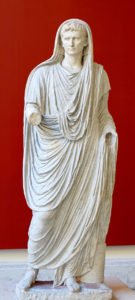
Augustus Caesar as Pontifex Maximus (Wikimedia).
One point I alluded to before is the misconception and fear I had that the Church could dictate whatever interpretations she pleased, no matter how contradictory they actually were to Scripture: that she could teach believers to believe Scripture meant something completely other than what it actually says. Well, the first thing that was clear to me, as I began to read the Catechism of the Catholic Church, the documents of the Second Vatican Council, even the Council of Trent, is that this hasn’t actually happened. When the Church speaks as a teacher, she bases her teachings on Scripture and on the interpretations of the past: each of these documents is rife with scriptural quotations and citations, quotations and citations from the Church Fathers, from prior councils and documents; a modern edition has footnotes. Each reflects the didactic method of a teacher and not the bald pronouncements of a dictator.
Jesus said that “the [leader of the faithful] must be as one who serves” (Luke 22:26). Peter taught that a pastor must shepherd the flock not by constraint but willingly, leading not by force but by example (1 Peter 5:2-3). This is the kind of authority that the Church offers as a teacher. In the very same statement as the one that I once took to be so troubling — the claim that the Church has “exclusive authority to interpret Scripture authentically” — she also says this:
But the task of authentically interpreting the word of God, whether written or handed on, has been entrusted exclusively to the living teaching office [magisterium] of the Church, whose authority is exercised in the name of Jesus Christ. This teaching office [magisterium] is not above the word of God, but serves it, teaching only what has been handed on, listening to it devoutly, guarding it scrupulously and explaining it faithfully in accord with a divine commission and with the help of the Holy Spirit, it draws from this one deposit of faith everything which it presents for belief as divinely revealed. (Second Vatican Council, Dei Verbum [Dogmatic Constitution on Divine Revelation] 10).
The Church cannot teach something that has not been handed down as truth. The Church does not “invent” teachings; she passes them on. It is plain for any student to see the truth of this, to see the support offered for every teaching, the foundations and precedents in traditional and time-honored interpretations of Scripture and in the teachings of the past. These teachings, these traditions, everything that makes up the deposit of faith — none of it is hidden, secret, or unknown, but all of it is available to be studied by the faithful.
Too Many Teachers
And why is the Church’s authority exclusive? Does this imply that individual believers are not authorized to interpret Scripture for themselves? Or that no one other than a bishop is capable of interpreting the meaning of the Scriptures truthfully? Not at all. It means only that God gave His teaching authority to the office that came (by the end of the first century) to reside in the bishop alone. And why? As someone who has spent most of my life involved in education, I can attest that when everybody thinks they are the teacher, nobody learns anything. Scripture is very clear that God appointed shepherds over us with the authority to teach.
The Church with authority over scriptural interpretation and doctrine is evidenced again and again in history. In Acts 15, when the controversy of the Judaizers arose, it was not individual believers, interpreting Scripture on their own, that decided the matter, but a council of Apostles and bishops. When the great heresies such as Arianism arose, the matter was not left to the consciences and private interpretations of individual believers, but the orthodox way was ultimately defined by a council of all the bishops through interpreting Scripture.
Sola scriptura presents the problem of “too many teachers” writ large. If every person’s interpretation is considered authoritative, if an individual believer’s opinion has just as much value as the whole teaching tradition of the Church, then we see in the history of Protestantism exactly what we should expect to see: thousands of separate churches. Everyone having authority ultimately means that no one has authority at all. And this is what I felt as a Protestant; this was the source of my paralysis.
And yes, it’s true, that Protestants insist that sola scriptura is not the giving of interpretive and doctrinal authority to every individual believer. They insist that the Church still has doctrinal authority, and to greater or lesser extents, some Protestants churches actually implement that. Some churches, such as the P.C.A., do enforce the orthodoxy of their confessions, and bring censure or even excommunication to those who depart from it. But then, if anyone disagrees with the confessions of the P.C.A., he is free to depart and start his own church, and feels the moral and doctrinal mandate to do so. Church authority is of no authority at all if the individual believer has the authority to challenge it. The church really does become a voluntary association. Sola scriptura, I argue, does necessarily result in the implication that every believer is his own teacher: even the most submissive Protestant can pick and choose what teachers he submits to; he can embrace the one whose teachings agree with his own private interpretation, and reject the one whose don’t. I think it is very telling, in comparing the history of the Catholic and Protestant churches, how comparatively rare real and substantial doctrinal schism — the actual breaking away of a significant number of believers to form their own churches, on account of some doctrinal dispute — is in the Catholic tradition, versus how commonplace splits of the local church or of whole denominations are in the Protestant world.
“Other Things”
Several times in the course of this series, I’ve alluded to my acceptance of other authorities, other sources such as historical documents, as instrumental in my eventual rejection of sola scriptura. I opened the series, provocatively, with the statement that “Protestants hold as authoritative the Bible alone, while Catholics deny this and add other things.” This was my understanding as a Protestant. It is not a very accurate statement of what Catholics believe.
First, do Catholics deny that Scripture is authoritative? That it is the Word of God? Absolutely not. For Catholics, just as well as for Protestants, Scripture is the highest, most eminent authority, the very and absolute Word of God in written form. Scripture cannot be denied, dismissed, or contradicted, by the magisterium of the Church, by the pope, or by anyone else. I very often hear the charges that “the Catholic Church makes her teachings equal with Scripture,” or places herself “above Scripture”: this is not true. The Church teaches about Scripture, from Scripture; she is not and cannot be above Scripture. Scripture is part of the deposit of faith and truth from which she teaches; she cannot add to, take away from, or alter that deposit.
What else is part of this deposit of faith? What “other things”? The other component of the deposit of faith is Sacred Tradition. No, this does not mean that the “traditions” of the Catholic Church are held to be authoritative, on the same level of Scripture. What does the Church mean by “Sacred Tradition”? Sacred Tradition is a technical term: it does not refer to “traditions” or to just any tradition in the Catholic Church, but very specifically to only one thing: to the oral teachings of Christ and the Apostles that have been handed down [traditae sunt] in the Church. If Christ spoke it, then it is the Word of God.

Juan de Juanes, Última Cena, c. A.D. 1562 (Wikipedia).
Protestants complain that this idea of “Sacred Tradition” is inherently amorphous and undefined, that at any point the Church can declare some novel doctrine on the basis that it is part of this unseen body of “Sacred Tradition.” Because it is not written down, it can be abused, or even invented whole cloth. But the “traditional” aspect of it is essential: every part of this “Sacred Tradition” has been handed down in the Church, and is visible, and practically, has been written down by the Church Fathers. The Church applies the same standard for Tradition that the most ancient Church applied: we know it is part of the deposit of faith, handed down from the Apostles, because it was taught in all the Churches (cf. Irenaeus, etc.).
So in the end, the statement that the Catholic Church adds “other things” to Scripture, that she believes “other things” in addition to the Word of God, is misleading. No, the Catholic Church does not indiscriminately hold “traditions” or “other things” to be divinely authoritative in addition to Scripture. Nothing the Church believes can contradict Scripture. Once I began to understand the truth of what the Church actually holds and teaches about Scripture and revelation, it seemed entirely reasonable and consistent with what I was was already coming to believe — and I readily let go of the notion of sola scriptura.
I have heard many Protestants, too, complain about the “tripod” of the Church’s teaching, with its three legs being Sacred Scripture, Sacred Tradition, and the magisterium — which seems to imply that the Church considers all three to be equal. This is an analogy, it’s true, that some Catholics have used, and Vatican II itself stated that “sacred tradition, Sacred Scripture and the magisterium … are so linked and joined together that one cannot stand without the others,” implying this image of the tripod. But the Church does not consider the three equal. The statement is only that “one [of the three] cannot stand without the others”; the illustration of the tripod, if it be drawn, is only meant to convey this interdependence, not the three components’ equality or even their relative positions. Neither Scripture nor Tradition interprets itself: a teacher is also necessary, but is a servant to the deposit of faith, not above it.
Conclusion
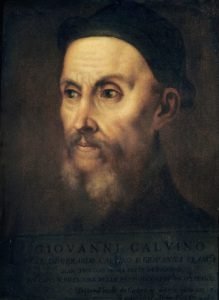
John Calvin, by Titian (16th century) (Wikimedia).
I had struggled for many years to arrive at some authoritative interpretation of Scripture. I believed, as a Protestant, that finding such an authoritative interpretation was my initiative; I was told that Scripture “perspicuous,” and such an authoritative interpretation should be plain, and that it was “self-interpreting,” that it ought to be findable without depending on my own understanding. Such plainly did not happen: The more I studied Scripture, the more paralyzed I became in coming to any sort of authoritative interpretation.
This was where I stood when I stumbled into the antechamber of the Catholic Church. I did not fully understand my problem — I could not have articulated what my paralysis was or what it stemmed from — and I had not even an inkling that the solution to it lay ahead. How could I move past my logjam? I needed a teacher. Protestants who espouse developed theology and doctrines point to “Scripture alone” as the origin of their teaching, but in truth they too are relying on an interpretive tradition, the fruit of teachers — the pastors, theologians, and Reformers who developed the doctrines that they hold. It is easy to point to a collection of doctrines already held and already exposited and claim they are clear on the face of Scripture, that Scripture can interpret itself, but in truth this is not historically and intellectually honest. Were these doctrines “perspicuous” and “self-interpreting” for the fifteen centuries before the Protestant Reformers developed and espoused them?
I had no teacher. I came from a background mostly bereft of concrete doctrine or theology or meaningful exegesis. I had not the benefit of an already exposed system of doctrine. I had the tools to exposit Scripture, but not the guidance. Thus, it gradually became clear to me over the years that the claims of sola scriptura were false: Scripture was not “perspicuous” in any meaningful way, apart from the barest outlines of the gospel. Scripture was not “self-interpreting.”
Scripture is a collection of texts. They do not “self-interpret.” Interpretation is the activity of a person, and Scripture is not a person. The Holy Spirit is a person, who can and does aid us in understanding the truth of Scripture — but His guidance is necessarily filtered through our own human perceptions; Scripture is necessarily understood through our own human interpretations. Over the years, developing in my consciousness as a Christian and as an academic, I had come to realize these things, more or less concretely, by the time I encountered the Church.
I needed a teacher; and where Protestants, especially the ones I was familiar with, tended to limit their interpretation of Scripture to their own understanding, or to teachers in the past who had done the same, the Catholic Church that I discovered strove to base her interpretation of Scripture on the whole context of Scripture and the whole body of received, authoritative tradition. I accepted this authority at first academically, but was troubled by the Church’s theological claims to have exclusive authority to interpret Scripture, perceiving them to be extravagant and somehow tyrannical. Over time, though, I came to see the truth: In interpreting Scripture, the Church is a teacher, not a tyrant. And I, at long last, had found my teacher.



